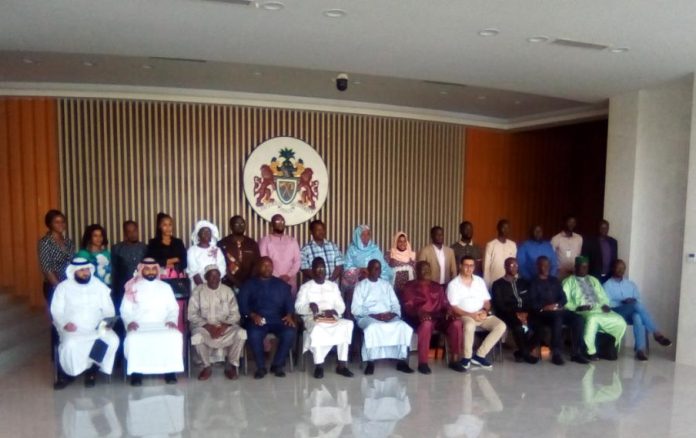Gambia’s Minister of Works and Transport, Bai Lamin Jobe, has called on contractors to make sure the safety of the public is protected during construction work.
The Minister’s remarks came on the heels of a signing ceremony of OIC Gambia 50 km urban road project awarded to a consortium of companies, which was held at the Sir Dawda Kairaba Jawara International Conférence Center in Kololi.
As the tiny West African nation is bracing up for the much awaited 2022 Organization of Islamic Cooperation (OIC) Summit, the urban road project is one the flagship projects of the OIC and is expected to decongest the traffic in the Greater Banjul Area (GBA) and in the West Coast Region.
While thanking the Kingdom of Saudi Arabia for providing a $50 million dollar grant, Minister Jobe said it will enable the construction of 20 key roads in the country’s most densely populated areas.
He then added that the 50 km urban road project will complement another major project on the Berthil Harding highway.
According to him, some of the roads will be upgraded and provided with drainage “so that it will be motorable throughout the seasons.”
Jobe further stated that the duration for the contract is 14 month, urging contactors to do their best in order to meet the deadline.
He seized the opportunity to remind the contractors they are going to face mounting challenges as “the demand to use these roads is very high.”
“There is going to be serious management efforts, and I hope you will exercise patience,” he warned while indicating that winning the contract does not mean they should not care about how people feel with regard to safety issues, and the dust they are creating…
Imed Gharbi, the consultant representing PACE and GAMECS, the contractors vowed to complete the work at the end of the fourteen month period.
For his part, OIC Gambia Chief Executive Officer ( CEO), Yankuba Dibba made it clear that their “greatest motivation to carry on and deliver at all costs, comes from knowing that our OIC projects will make life a lot better for everyone in The Gambia.”
Going forward, Dibba clearly stated that their “projects have the potentials to significantly transform and impact positively on the development trajectories of this country.”
He expressed satisfaction at the bidding process as “the selected contractors are made up of Gambian partners.”
“This is in line with the Secretariat’s policy of empowering local content and expertise,” he emphasized.
Written by Abdoulie John


